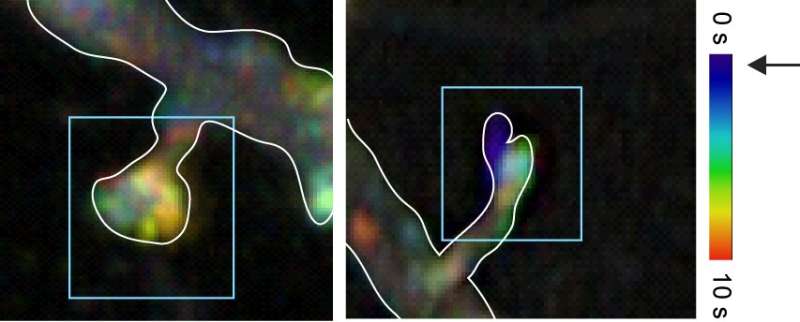JNK protein triggers nerve cells to withdraw their synapses when stressed

Synapses are tiny cell protrusions where electrochemical impulses pass between nerves. Prolonged stress in the brain causes synapse withdrawal and maladaptive changes to circuits that are linked to the development of major depressive disorder.
Postdoctoral Researcher Patrik Hollós and colleagues used a light-activated optogenetic tool to switch off the activity of a protein called JNK specifically in synapses.
"Using a light beam to inhibit the JNK protein prevented synapses from shrinking in response to stress. Specifically the internalisation of a receptor called 'AMPAR,' an early event in synapse disassembly, was blocked," explains Hollós.
JNK Is a Stress Sensor in Synapses and May Elicit the Effects of Ketamine
Researchers also found that the novel, fast-acting anti-depressant ketamine inhibited the JNK protein while preventing synapse retraction.
"These results show that the JNK protein is a stress sensor in synapses. When activated, it triggers the disassembly of synapse machinery followed by rapid synapse regression. Conversely, inhibiting the JNK protein makes synapses able to withstand chronic endocrine stress. This may be relevant for conditions where hormonal stress leads to synapse elimination but also to control synapse number under normal homeostatic conditions," says team leader Eleanor Coffey.
These findings help us to understand how stress dismantles synapses, and provides clues for novel targeted therapies.
The study was published as a research highlight in the open access journal of the Society for Neuroscience, eNeuro.
More information: Patrik Hollos et al, Optogenetic Control of Spine-Head JNK Reveals a Role in Dendritic Spine Regression, eNeuro (2020). DOI: 10.1523/ENEURO.0303-19.2019


















